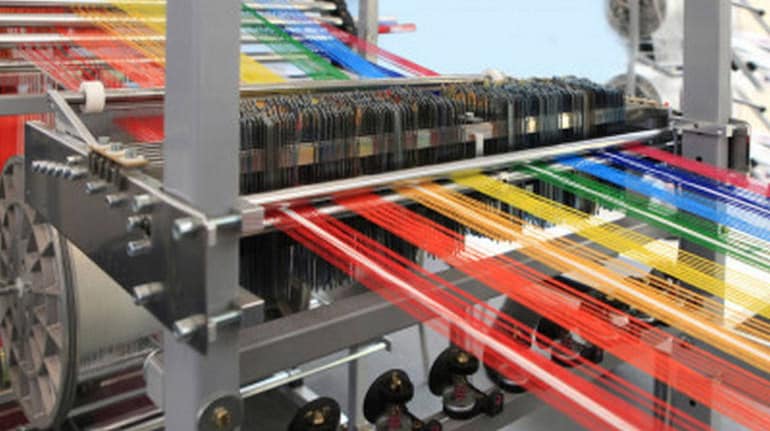
Krishna KarwaMoneycontrol Research
Established in 1989, SP Apparels Ltd (SPAL) is engaged in the business of manufacturing and sale of knitted clothes for infants and children. End-to-end manufacturing processes of such items are undertaken by the company’s garments division, which caters solely to the export markets. SPAL also set up a subsidiary in the UK - SP Apparels (UK) (P) Ltd, to be better connected with its clients in Europe.
SPAL’s retail segment exclusively manufactures and sells ‘Crocodile’ branded menswear garments in India through Crocodile Products Pvt Ltd (CPPL), an India-based joint venture between SPAL (70 percent share) and Crocodile International Pte Ltd (CIPL) as per a technology licence agreement. Product distribution is effected through a network of ‘Crocodile’ stores and third-party e-commerce platforms. ‘Natalia’ is SPAL’s own brand for womenswear products, the sales of which have not commenced yet.
Capacity Expansion & Additional Stores
Looking at the increase in orders, SPAL initiated expansion of its manufacturing and dyeing capacities. With backward integration also on the agenda to cut input costs, the company’s operating income growth and gross margin profile are likely to improve. Presence of all 21 manufacturing facilities within a 125 kms radius of Tirupur, a pivotal textile hub in South India, is operationally synergistic, too.
SPAL's move to launch 70 ‘Crocodile’ stores in nine Indian states, apart from exploring the option of adding 10-20 franchisees by the end of FY18, aims at boosting its top-line by capitalising on the uptrend in demand for branded garments. SPAL’s retail segment, plagued by operational losses in the past, is expected to break even by the end of H1FY18.
Strong Visibility
SPAL is a preferred vendor for knitted infant/children garments by renowned UK-based retailers such as Tesco, ASDA, Primark, Mothercare, and Dunnes Stores. To expand its customer base, the company’s efforts are directed towards adding 4-5 new clients in FY18 (including some outside the UK), while simultaneously sourcing more orders from the existing ones. In India, SPAL’s product presence spans large format stores (Star Bazaar, Mega Mart, Central, Unlimited, Reliance Market, More, Globus, Walmart) and e-commerce portals (Flipkart, Amazon, Jabong). The company has an exclusive licence to manufacture and distribute ‘Crocodile’ branded menswear in India, which yield superior realisations vis-a-vis non-branded variants.
Debt Repayment
Majority of SPAL’s initial public offer (IPO) proceeds were utilised to repay long-term debt of Rs 630 crore in FY17. As the debt equity ratio reduces gradually to 0.3x over the next two years, interest coverage is likely to go up to 7.5/10x in FY18/19, respectively. A resultant impact of this would be visible in the profit after tax (PAT) margins, which are projected to cross 10 percent by the end of FY19.
Benefits of GST Implementation
GST will cause unorganised entities (many of which are present in the kids garments space) to lose a significant degree of the pricing edge and market share. Rising disposable incomes have led to a shift in consumers’ preferences towards high-quality garments, especially in tier 2/3/4 Indian cities.
Global Tailwinds
The market size of children-wear/infant products is estimated to grow to USD 300 billion by 2019 at a compounded annual growth rate of 5-6 percent. Germany, UK, France, and Italy are ranked high in terms of per child spending on apparel in the world. In financially adverse economic conditions, parents tend to reduce their own discretionary spends but not those of their children. Moreover, children quickly outgrow clothes, thus making periodic purchase of new apparel an absolute necessity. The rise in Chinese labour and power costs will give a competitive edge to Indian garment manufacturers.
Challenges
Export of infant wear/children wear garments, which constitute 90 percent of SPAL’s sales, are billed in USD/Pounds/Euros, thereby exposing the company to foreign exchange fluctuation and global economic/trade uncertainty risks.
SPAL has a high degree of concentration risk in the UK markets that warrants mitigation by way of geographical and client diversification.
Vietnamese and Bangladeshi garment players could be competitive threats for SPAL, owing to their relatively lower manufacturing costs.
Chances of a Delhi High Court decree being passed in favour of Lacoste in the ongoing legal tussle between the French company and CPPL may potentially disrupt SPAL’s retail segment performance trajectory.
Valuation

At 11x FY19 projected earnings, SPAL’s valuations seem cheaper than most other leading Indian garment manufacturers. Any global volatility, including the one that could emanate from the upcoming UK elections, may provide an opportunity to accumulate the stock with a medium to long-term investment horizon.
Discover the latest Business News, Sensex, and Nifty updates. Obtain Personal Finance insights, tax queries, and expert opinions on Moneycontrol or download the Moneycontrol App to stay updated!
Find the best of Al News in one place, specially curated for you every weekend.
Stay on top of the latest tech trends and biggest startup news.